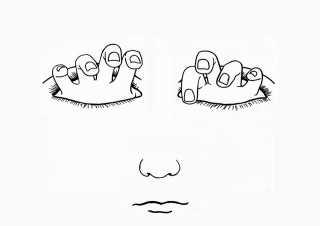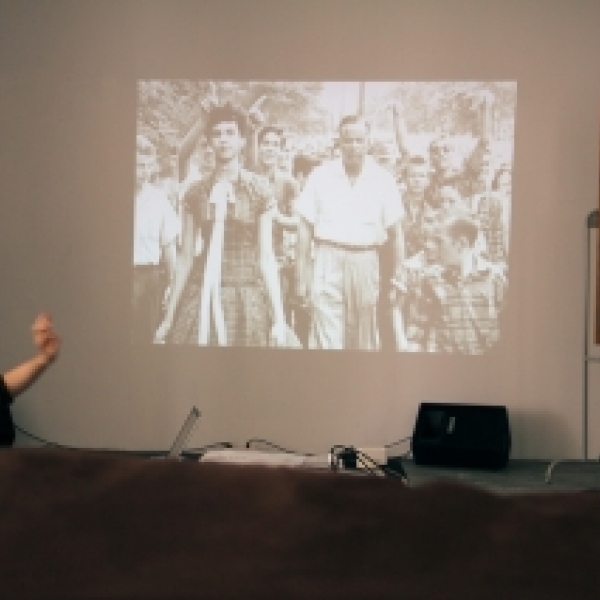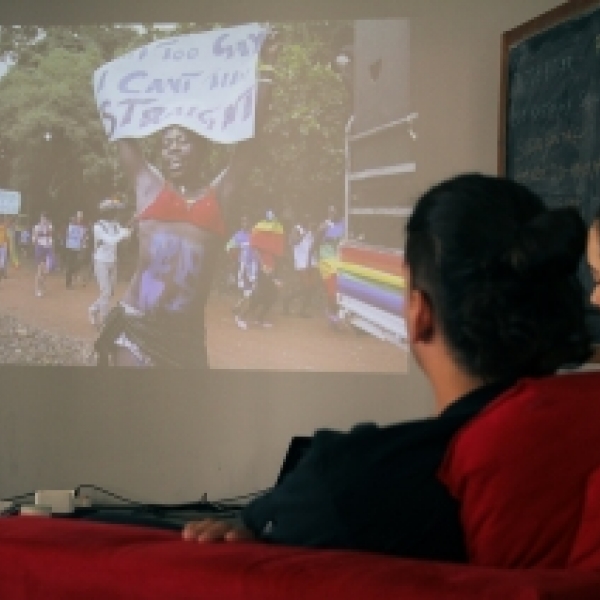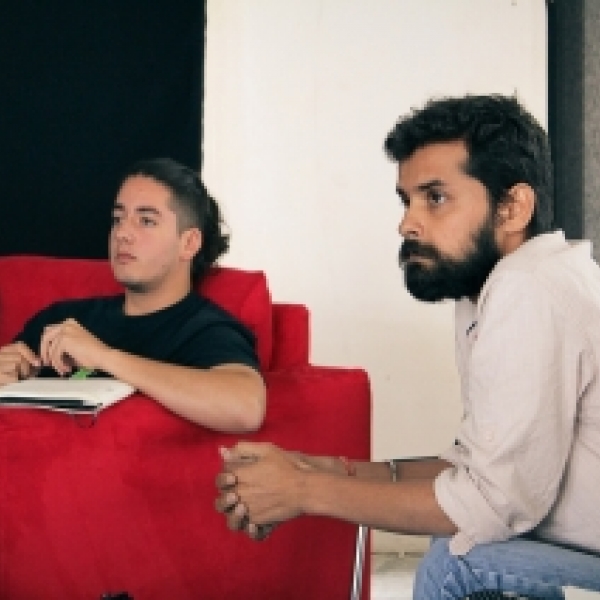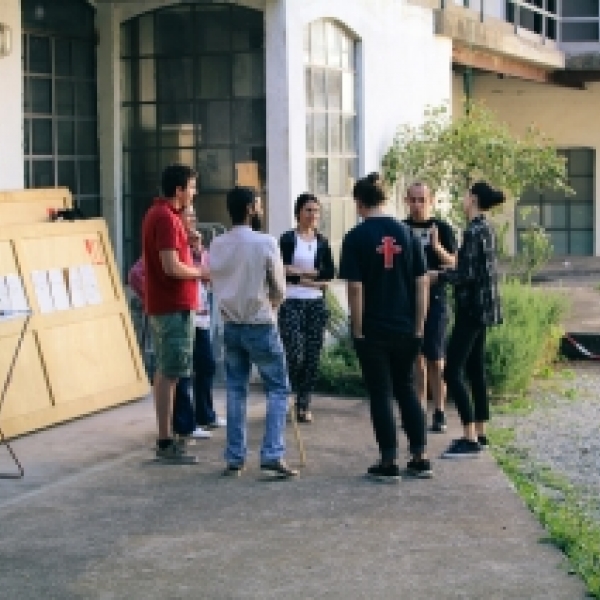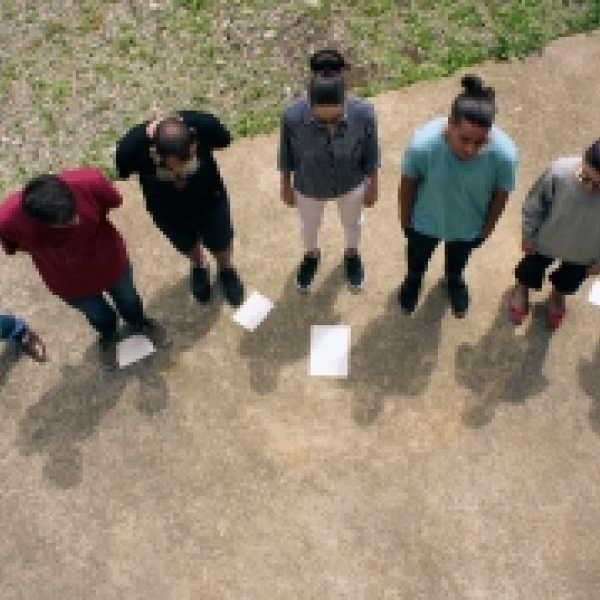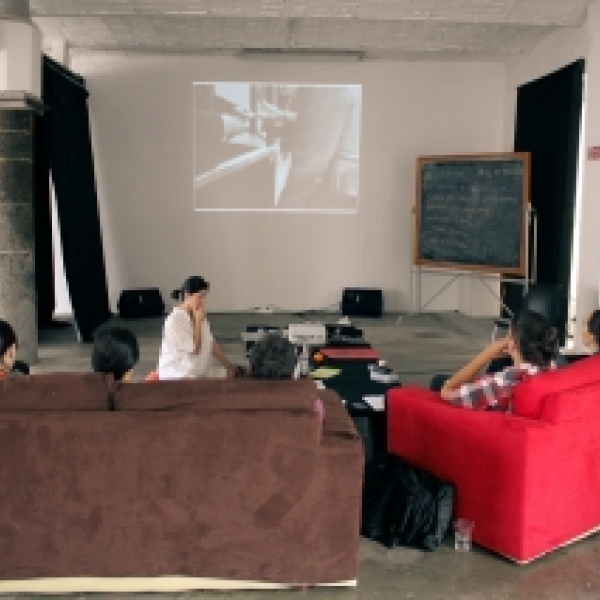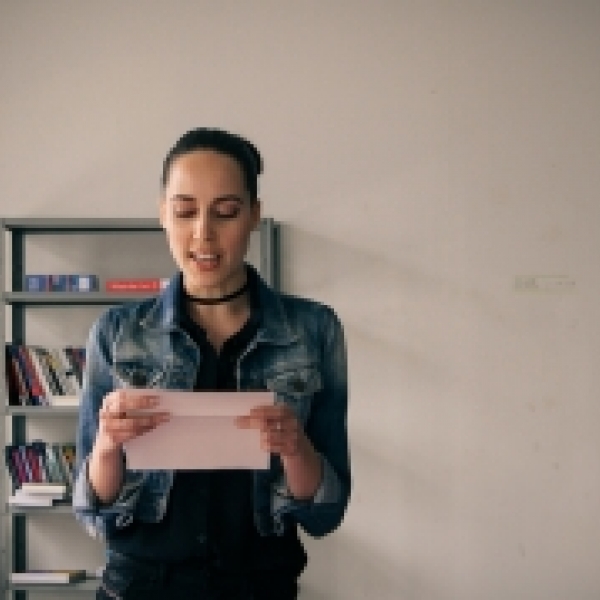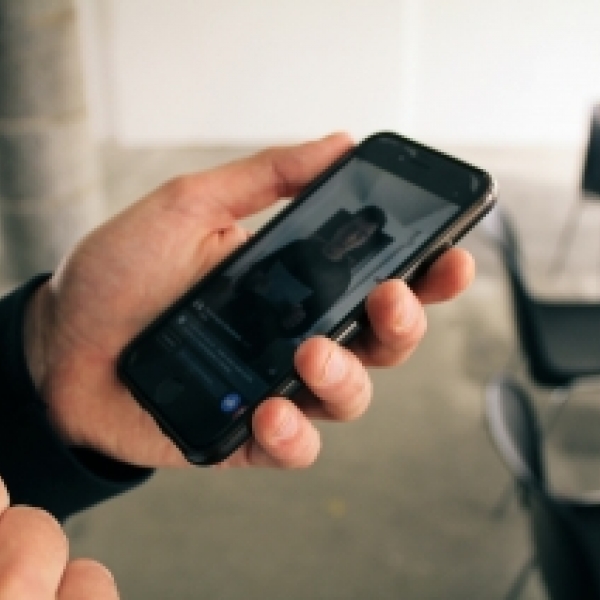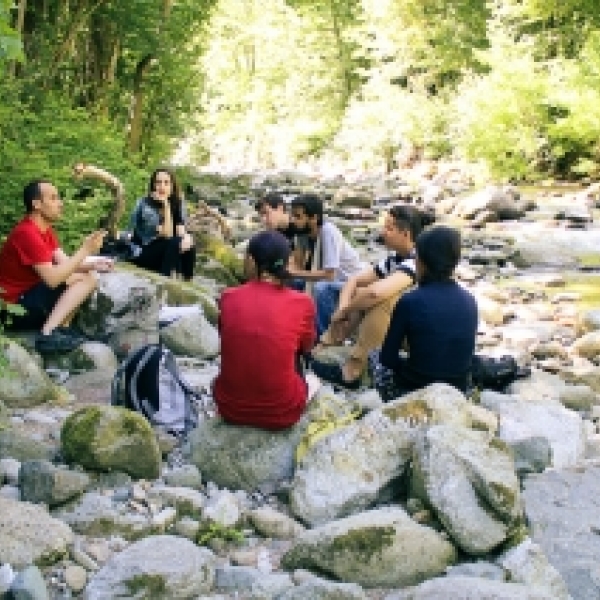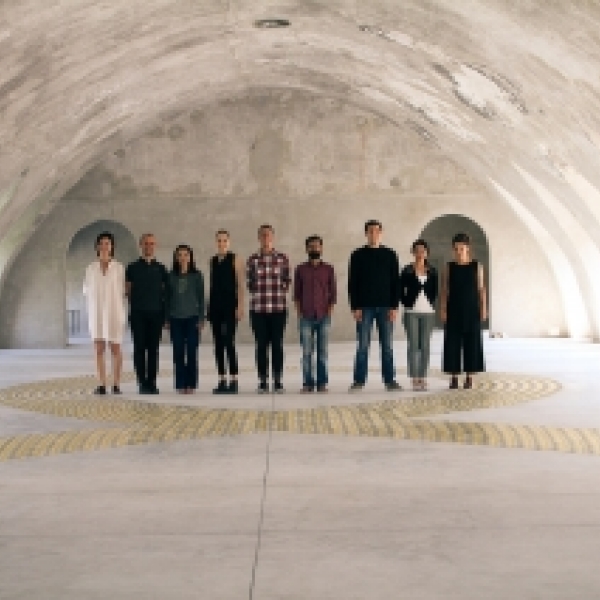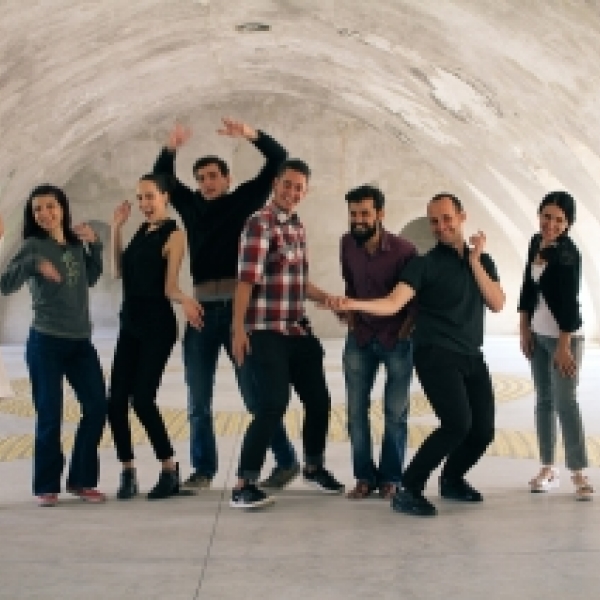Touch, Don't Dominate
"Touch, Don’t Dominate" is configured as a time and work space to think about how to produce and think artistically aesthetics of cares and affects.
We are very affected by the discomfort produced by neo-liberal policies. Also, these policies have increased hatred and fear against some collectives. The dominant discourses from power tell us that hatred or fear respond to subjective and psychological logics, and do not respond to a determined social policy. However, this discourse generates a psychologization and privatization of the emotions that continue to perpetuate a strong social violence. These processes conceal the economic interests operating behind certain policies against certain subjects.
For Sara Ahmed, the affective logic of hatred is fundamentally economical rather than psychological. Ahmed's approach to emotions as cultural constructions criticizes the psychologization and privatization of emotions. From this perspective, emotions are capable of creating ways of being and acting in the world thanks to their intensified circulation between subjects and objects. In other words, emotions are "performative".
At the same time, many groups of people have raised the desire to generate different political economies that, we understand, can only be produced by generating other affective policies.
How are socially, culturally and politically emotions constructed, such as hatred and fear against groups of immigrants, women, gays, lesbians or transsexuals? How can we point to the invisible mechanisms that shape the economies of these emotions? How do we produce new critical imaginaries and other science fiction narratives about them?
"Touch, Don’t Dominate" proposes to deepen the potential of the artists to create a type of “performative mediation” that produces new venues for the encounter, spaces of suspension of time or the activation of protest.
This module aims to think about these issues, but basically to put practical methods and artistic systems into use to point out the invisible elements of the "affective economies" of our political systems and to produce new imaginaries of Common, Desire and Revolutions that are still to come. The participants will create a performance through an artistic “experiment”.
Julia Morandeira Arrizabalaga will be present at the module as a guest, in order to extend and refine how to work with these topics and the notion of learning in artistic productions. She co-directs La Escuelita del Centro de Arte Dos de Mayo - CA2M together with Margarida Mendes, an informal school devoted to collective study and transdiciplinar knowledge, as well as new forms of producing knowledges. She is part of the artistic collective Magnetic Declination with Diego del Pozo and others.
SCHEDULE
June 5th
morning
Guided tour to Cittadellarte (Curated by Elena Rosina), including the Pistoletto, Arte Povera collections and temporary exhibitions.
Introduction to the Theorem of Trinamics, the symbol of the Third Paradise and the concept of Demopraxy.
afternoon
Mentor’s and participants’ presentations.
June 6th
morning
Touch, Don’t Dominate, presentation of essays and videos of reference (Sara Ahmed, Donna Haraway, Subtramas, Harun Farocki, Jennie Livingston). Group discussion.
afternoon
Presentation of some case studies: Read the Masks. Tradition is not given by Petra Bauer and Annette Krauss at Van Abbemuseum; Four Questions for a Usefulness That Is Still to Come by Subtramas in the exhibition Really Useful Knowledge at Museo Reina Sofía in Madrid (2014-15). Group discussion.
June 7th
morning
The “experiment”. Divided into small groups the participants will work on actions and narratives of fiction. Three conflicted situations in the Italian, European and global public sphere will be proposed as a reference. Each single group will choose between one of those, and invent an action or performance. Limitations and challenges will be taken into account for the development of the performances.
afternoon
Work in progress for the “experiment”. Group discussion.
June 8th
morning
Presentation of a case study: La Escuelita del Centro de Arte Dos de Mayo – CA2M.
Lecture held by Julia Morandeira Arrizabalaga, followed by a conversation between the mentor and the guest.
afternoon
Group discussion related to the idea of “performative mediation” and artistic methodologies to develop this performativity.
June 9th
morning
Work in progress for the “experiment”.
afternoon
Final session with the presentation of the results of the “experiment”.
evening
Party.
REFERENCES
The mentor will prepare a reader for participants with key texts, some of which will be discussed during the week. The reader will include pieces by authors, artists, curators and intellectuals.
Texts
• Sara Ahmed, “The Organisation of Hate”, in The cultural politics of emotion. Edinburgh: Edinburgh University Press, 2004.
• Diego del Pozo, Shame! Rearming, Refiguring and Transfiguring, Re-Visiones, Vol. 5, 2015. www.re-visiones.net/spip.php%3Farticle150.html
• Donna Haraway, Situated Knowledges: The Science Question in Feminism and the Privilege of Partial Perspective, Feminist Studies, Inc., Vol. 14, No. 3, 1988. www.jstor.org/stable/3178066
• Donna Haraway, “Sympoiesis”, in Staying with the Trouble: Making Kin in the Chthulucene, Durham, Duke University Press, 2016.
• Subtramas (Diego del Pozo, Monste Romaní and Virginia Villaplana), “Conversing the Action, Narrating History, Eliciting the Present”, in What's The Use? Constellations Of Art, History And Knowledge. A Critical Reader, Valiz, Van Abbemuseum, University Hildesheim and L’Internationale, 2015.
Videos and Films
• Annette Krauss and Petra Bauer, Read the Masks. Tradition is not given, Holland, 80', 2009.
subtramas.museoreinasofia.es/es/contenidos/read-the-masks.-tradition-is-not-given-leed-las-mascaras.-la-tradicion-no-es-algo-dado-
• Harun Farocki, Inextinguishable Fire, Germany, 21´, 1969. www.youtube.com/watch?v=OXBxgB0Fvx0
• Jennie Livingston, Paris is burning, USA, 78´,1990. www.youtube.com/watch?v=hedJer7I1vI&t=2473s
Websites
• archivodecreadores.es/artist/diego-del-pozo/213
• www.hamacaonline.net/autor.php?id=355
• www.ganarselavida.net/
• subtramas.museoreinasofia.es/es/anagrama
• declinacionmagnetica.wordpress.com/
• www.museoreinasofia.es/en/exhibitions/really-useful-knowledge
• www.museoreinasofia.es/en/activities/actions-really-useful-knowledge
• www.museoreinasofia.es/visita/tipos-visita/visita-comentada/recorridos-saber-realmente-util
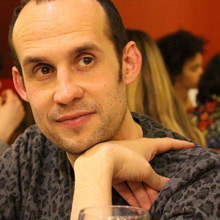
BIOGRAPHY
Diego del Pozo Barriuso lives and works in Madrid. Artist, cultural producer and professor of the Faculty of Fine Arts of the University of Salamanca. He is a member of the artistic collectives Subtramas, C.A.S.I.T.A. and Declinación Magnética. His artistic projects are motivated by the social construction of subjectivities and the notion of affective economies, he produces “Affective Artistic Dispositifs”. He has participated in the exhibitions Atlas of the Ruins of Europe at CentroCentro Cibeles, Madrid (2016-17); AIDS Anarchive at Tabakalera , San Sebastián (2016); Really Useful Knowledge at the Reina Sofia Museum, Madrid (2014-15); Until lions have the own historians... (2014-15) at Matadero, Madrid; Inventer le possible, Une Vidéothèque Éphémère, Jeu de Paume, Paris (2014-15); Our work is never over (2012) at Matadero, Madrid; Colonia Apócrifa (2014) and Educating Knowledge (2010), both in MUSAC, León and Apres la fin / valeur travail (2009) at Haus der Culturen der Welt, Berlin.
He has had exhibitions, both individual and collective and video programs in other galleries and centers of contemporary art such as La Casa Encendida in Madrid, CAB of Burgos, DA2 in Salamanca, Centro Cultural Montehermoso of Vitoria, Copenhagen Nikolaj Kunsthal, and in Paris at Jeu de Paume, Chatelet Theatre, Centre George Pompidou and the Palais de Tokyo and others. His art works are in collections such as MUSAC de Leon or Domus Artium 2002 in Salamanca (DA2) among others. He is also a member of the research groups Las Lindes, Peninsula and Visualidades Críticas.
GUEST
Julia Morandeira Arrizabalaga is an independent researcher and curator.
She is based in Madrid, where she co-directs La Escuelita del Centro de Arte Dos de Mayo - CA2M together with Margarida Mendes, an informal school devoted to collective study and transdiciplinar knowledge, as well as new forms of producing knowledges. She is part of the artistic collective Magnetic Declination and part of the research group Península.
In the last years she has researched through different frameworks the figure of the cannibal and cannibalism as a colonial construction of modernity, as a device of the political imagination, as well a visceral ecosystem from where to reposition our relation with the world. The projects encompassing that line of work include the two exhibition chapters of “Canibalia”, in Hangar in Lisboa (2017) and Kadist Art Foundation in Paris (2015); the course ‘Cannibal Affinities’, during the autumn semester at ArtCenter/South Florida, Miami (2016); as well as the publication and presentation of the research in different spaces (Kunstcenter Bergen, 2016; Les Laboratoires d’Aubervilliers, Paris 2015; Oberon Magazine 1, Copenhague, amongst others). The exhibition “ATLAS of the ruins OF EUROPE” at CentroCentro, Madrid (2016), co-curated with José Riello, also explores
the re-configuration of historical narratives throughout the semantics of the ruin. In addition to this, another line of work is centred in the imagination and activation of forms of institutionality, support structures
and affective economies, which coalesced in the publication “Be careful with each other so we can be dangerous together”, produced at Beta Local, Puerto Rico (2016), as well as the activation of the Cannibal House at the Spanish Cultual Center in Costa Rica (2015). Morandeira holds a degree in the Humanities from the Universitat Pompeu Fabra (2008) and an MA in visual culture from Goldsmiths College, London (2009).
The residency fee includes accomodation, half-board and Arci's Annual Pass Membership.
